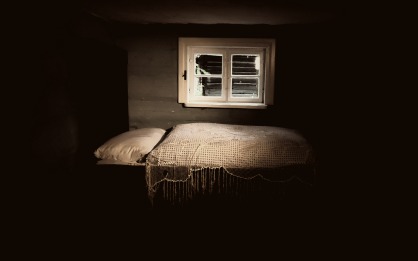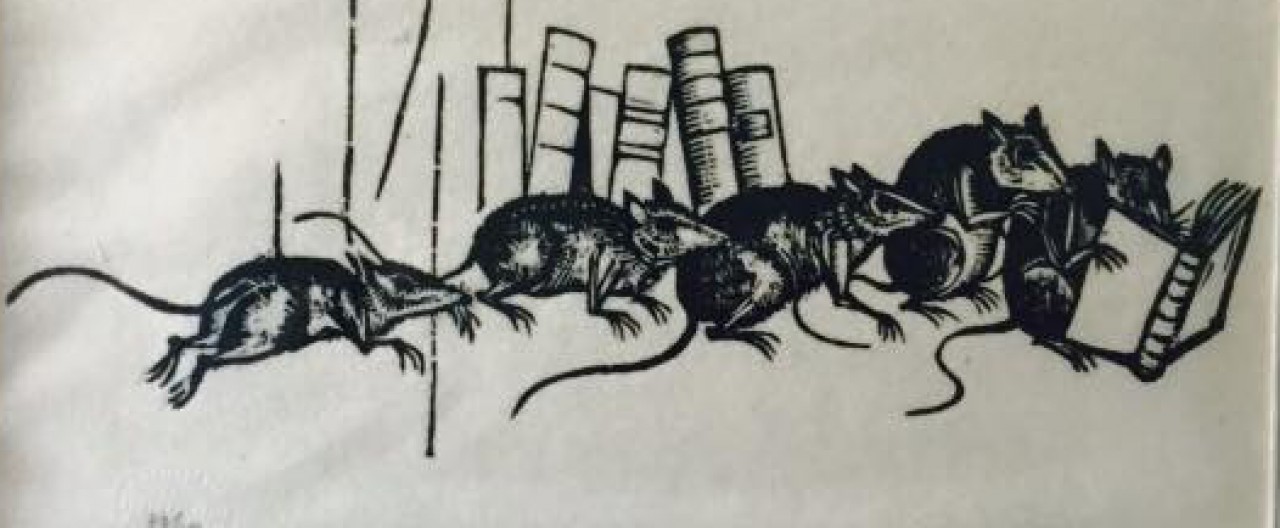One summer when she was twelve, Clare went to her Aunt’s on Cape Cod for a week. She was one among 8 siblings, so a trip alone to her Aunt’s summer cottage, where her grandmother would also be, was a rare venture into a world of doting and care. (Clare is a middle child.)
At the end of her stay, Clare’s mother picked her up and they made the hour drive back from the Cape to their small town south of Boston. Her mother gave no hint of anything being amiss. But something was. Clare’s room was gone.
 Well, the room was not gone. It was occupied. And it was not even really a room, but rather a storage closet. The space was big enough for a twin bed, even for bunk beds when she had shared it with her older sister. But while Clare’s grandmother and Aunt were lavishing her with attention and homemade cookies on the coast, a rift between her parents resulted in her father commandeering the storage closet and Clare being bedless.
Well, the room was not gone. It was occupied. And it was not even really a room, but rather a storage closet. The space was big enough for a twin bed, even for bunk beds when she had shared it with her older sister. But while Clare’s grandmother and Aunt were lavishing her with attention and homemade cookies on the coast, a rift between her parents resulted in her father commandeering the storage closet and Clare being bedless.
The change was never discussed—not during the drive home with her mother, not upon arriving home, not when Clare headed to her room to find it full of her father’s things. Why would a loved girl in a big Catholic family with a roof over her head describe this as the most tragic memory of her childhood?
“We need a home in the psychological sense as much as we need one in the physical: to compensate for a vulnerability. We need a refuge to shore up our states of mind, because so much of the world is opposed to our allegiances. We need our rooms to align us to desirable versions of ourselves and to keep alive the important, evanescent sides of us.”
―Alain de Botton, The Architecture of Happiness
Clare had no place, and worse, nobody seemed to notice.

My father did not share many memories of his childhood. His mother put him in a basket on the kitchen table when he was 6 months old, left a note, and disappeared. It was 1927, and my grandfather did what many single fathers chose to do at that time. He promptly put my father in the care of an orphanage. He lived there until he was 4 and more “manageable.” Not the stuff of nostalgic reminiscing, there.
One memory from childhood—post-orphanage childhood—my father shared was the story of the day a “hobo” came to the back door looking for work. My grandfather gave the man some work to do in the barn, and afterwards my father’s stepmother rewarded the beggar with a plate of food. My father remembers the man being forced to eat outside.
My father, proud and fiercely self-sufficient, was no bleeding heart. He referred to religious people as “holy rollers” and the altruistic as “do-gooders.” But the memory of a poor man exiled to the back steps to eat without company or comfort made a lasting impression on him. Maybe because he himself had spent 4 years as an orphan, without family, without a place.
In the comments section of a post on voyeurism, in which I address the quest for a vision “normal,” Clare wrote,
“As dysfunctional as my family was we did have dinner together every night. My father would have started on his first 6 pack before dinner, continue through dinner, then finished up another after dinner before he fell asleep in his chair or on the couch. It wasn’t horrific, but there was a lot of ridicule thrown around the table. A friend in high school shared that she used to walk by our house at dinner time and see us all around the table, how nice it looked. I thanked her but thought. “If you only knew. I wish it was like you imagine it to be.”
Perhaps the unsteady themes of life with a father who drinks or the unspoken foreshadowing of her parents decision to sleep in separate rooms made the loss of her own place in the house so destabilizing.
People compliment me on my hospitality. Mine has been described as an aggressive Russian hospitality that insists on your comfort whether you like it or not and anticipates your every need, real or imagined. Our guest room is always at the ready. However, my son, who has two perfectly good pillows of his own, likes to steal pillows from the guest room. This sends me right over the edge—he would say lots of things do. Having a place ready for the dispossessed is my religion; Hebrews 13:2 is dogma feverishly observed. Don’t steal the pillows.
Hospitality is biblically ordained because humans are fragile and prickly and wounded, and a place to lay our heads is the most basic security, a healing balm.

Playwrite and filmmaker Israel Horowitz shared on NPR today,
“We know people who are in their 50’s or 60’s who are still talking about damage that their parents did to them and there’s a big piece of our brains that says, ‘You know, get over it.’ But there’s another piece of our brains that knows they’ll never get over it.”
There was an alcove off Clare’s mother’s room, a sort of sewing room. Clare’s mother put a cot in there, and together they hung a sheet across the opening, and that night Clare had a place to sleep. In her fifties today, Clare is positive and fierce and capable. Clare only just revealed this story to me. She is still talking about it.
My father experienced the very worst abandonment at the tenderest age. He nevertheless grew to be funny and smart and successful. He deeply loved his 4 children; in fact, his unconditional love of us was his defining characteristic. You might say his ability to love was triumphant. But he never got over it.


I thought this was quite a sad one. I think because my child is small, these are particuarly painful to think about.
LikeLike
Parenting gives perspective; I think it also makes us more merciful to other people’s quirkiness, realizing they are all someone’s child.
LikeLike
Thanks, Misty, for sharing your insights!! Remembering your dad and his care for a homeless cat!! There are others on the horizon of our work that are struggling deeply and acting out the struggle in a perceived negative way- it helps to think about the struggles and not be judgemental–“Mercy triumphs over judgement” James 2:13
LikeLike
Mercy is my favorite word. ❤
LikeLike
I talk about it because I think it helps children I know to realize that the grownups they know had to endure difficulties as children. I knew it was a strange situation at that time, (the loss of my room), but I did not realize how crazy it was until I was an adult.I.
LikeLike
Thank you, dearest, for letting me share your story. I’ve had more feedback than on any other . . .
LikeLike
thank you for sharing Misty
LikeLike
Thanks for your faithful readership.
LikeLike
Misty, my heart shrank when I read about Clare’s hurt, and your father’s early life. And I’m glad I got to know him, how he was always ready to help. Can’t forget how he fixed my shower, the three of us in a tiny bathroom…
What a writer you are! keep doing it always, as your teacher told you to, when you graduated from Sarah Lawrence.
LikeLike
Pingback: The Ghosts We Have Hidden in Various Places | A Word, Please. . .
Pingback: Bricks and Mortar and Holy Ground: Real Estate as Ritual | A Word, Please. . .
Pingback: Merry Imperfect Christmas – A Word, Please. . .